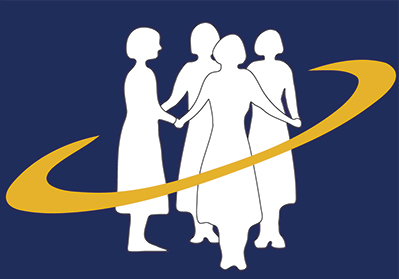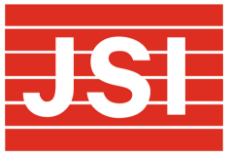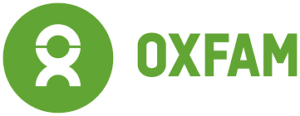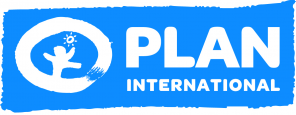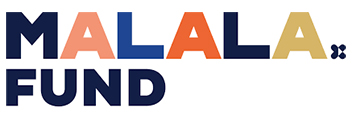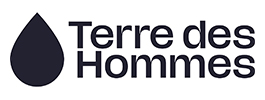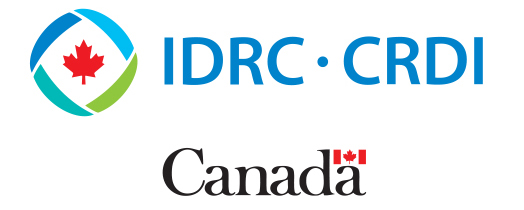Capacity Building
Capacity Building
Ending Violence against women and girls is becoming one of NEWA’s important strategic objectives. In order to achieve this objective, NEWA employs various strategies. Capacity building is one of the main strategies identified to end violence against women and girls.
NEWA has skilled leaders and professionals actively building their knowledge and skills. Capacity building is an ongoing process. Staff and management capacity building should be given due attention. In order to effectively build the capacity of the staff and management, sha has conducted capacity assessment, has developed improvement plan and also has managed the staff performance on regular basis. Besides, maintaining gender balance of NEWA staff and promoting Reward Management System should also be emphasized.
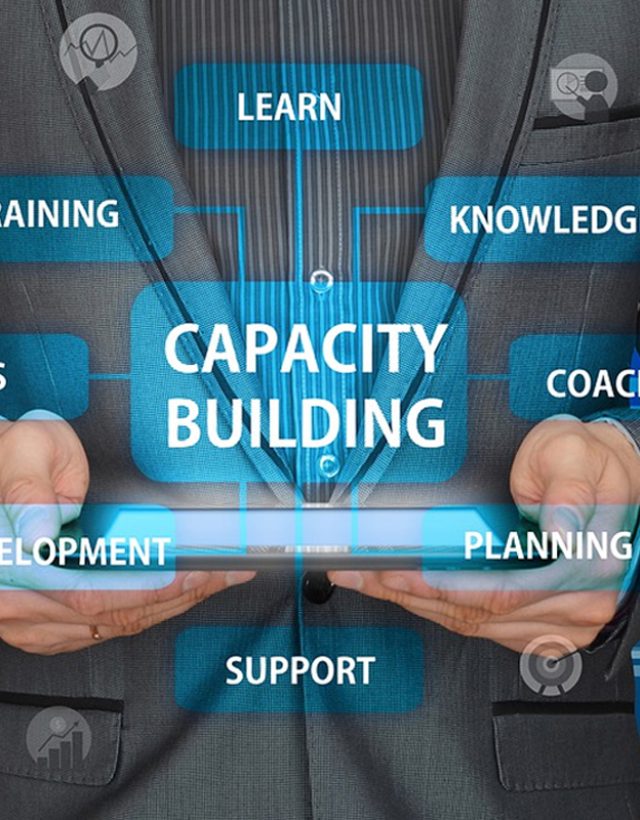
To capacitate members organizations and for the smooth implementation of projects NEWA supported the hiring of program and finance staffs. Based on this, competent staffs through merit advantage hired and placed in targeted member organization. The hiring process was fully managed by the sub grantees. The availability of the staffs helped the organizations to prepare different proposals and able to solicit additional fund for the implementation of another intervention.
The other capacity building program provided by NEWA for member women organization is purchase of office furniture, website development, and staff training. This supported them to run their day today activities smoothly and provide quality service for target beneficiaries.
NEWA as a civil society organization was requested to contribute its share in the fight against the COVID 19 pandemic in Ethiopia. Since it is an unforeseen scenario for the government and NEWA, the management team decided to take part in the effort to prevent and protect the society from Covid-19. Thus, NEWA committed to contribute ETB 100,000.00 from the Gates Foundation fund to support the efforts, especially to the expenses related to persons quarantined. These are expenses to food and sanitary materials provision to 100 persons during their stay under quarantine.
Webinar sessions have been conducted on weekly basis with facilitation and coordination of NEWA. In the webinar meeting twenty seven member women organizations have been participating and discussing on cross cutting issues such as GBV, human trafficking, prevention of COVID-19 and required response, ten years gender perspective plan, etc. This helps women organization increase their awareness on the raised issues and to design appropriate response mechanisms in addressing the problem of vulnerable girls and women. Moreover; the webinar meeting save time and other resources and helped to achieve organizational objectives with minimum cost and enhanced effectiveness.
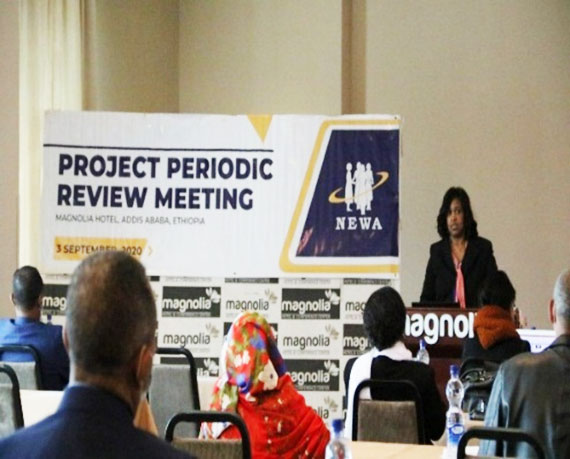 Review meeting was conducted on 3-Sept-2020 for half day at Magnolia Hotel. The purpose of the review meeting is to review the progress of member organizations (sub grantees) periodic project implementation. The meeting helped participants to exchange their experience, learning, best practices and to scale up and implement in their respective operational area. In the review meeting a total of 26 participants (M=9, F=17) attended the meeting.
Review meeting was conducted on 3-Sept-2020 for half day at Magnolia Hotel. The purpose of the review meeting is to review the progress of member organizations (sub grantees) periodic project implementation. The meeting helped participants to exchange their experience, learning, best practices and to scale up and implement in their respective operational area. In the review meeting a total of 26 participants (M=9, F=17) attended the meeting.
During the meeting representatives of sub grantees presented their quarter plan vs. achievements (both physical & financial accomplishments). Updating existing manuals, undertaking organizational capacity assessment, assessment on the impact of COVID-19, IPSAs training, awareness creation on COVID-19, material & financial support for beneficiaries, project launching, awareness creation on women land right for woreda administrators, challenges and lessons were some of the addressed issues during the presentations.
According to the participants, resource limitation to address additional need of beneficiaries, turnover of woreda expertise were some of their challenges
The weekly virtual dialogue platform titled Gender and COVID-19, later renamed Gender in Focus, was organized by Network of Ethiopian Women’s Associations (NEWA), to discuss on emerging diverse women’s issues that calls for concerted effort of all committed to do away with inequalities and injustice that threatens the lives of women and girls, particularly with the concerning implications of the rise of gender-based violence and discrimination against women and girls and the global pandemic of COVID 19 changing the socio-economic dynamics. The dialogue platform brings together government actors, civil society representatives, development partners and community representatives, members of academia, members of the media to discuss and the impact of COVID 19 from a gender perspective, current and contemporary issues in Ethiopia, root causes of inequality, discrimination against women through regular dialogue.
The weekly webinars serve the purpose of bringing these core women’s rights issues to the forefront to table it on government and other partner’s agenda. The platforms also aim at discussing various measures and COVID 19 responses the government and other stakeholders are undertaking to avoid duplication of efforts, In addition, the virtual dialogue platform has become a household name for collaboration within CSO’s in Ethiopia. It has created a conducive environment for information sharing, networking, research sharing and validation, resource mobilization and coordination among civil society organizations. Critical issues that may affect women and girls in particular such as unpaid care work, violence against women and harmful traditional practices, and engagement in informal sectors were brought to the forefront under webinar. The alliance formed in the dialogue platforms has seen the birth of policy brief, press statements, and joint call for actions in response to the ever-changing and fragile socio-economic and political environment of Ethiopia. The dialogues have served as an outlet for change, and a beacon of hope by becoming the voice for the many vulnerable and disadvantaged parts of society.
The webinars have a weekly attendance of up to 44 representatives from civil society representatives, UN Agencies, Government representatives and Gender Activists. The focus of the webinar included the deliberation on the ten-year perspective plan, where, CSOs organized their inputs on the draft and submitted to the Government. As a result of the weekly Webinar, CSOs were able to collaborate voice their concerns to the government as well as other stakeholders on issues affecting Ethiopian women. Thus, the following Joint Press statements were issued by the collaborating CSOs through the facilitation of the webinar chaired by NEWA:
- Joint Statement of CSOs on the Impact of Covid-19 on women and girls in Ethiopia
- “Civil Society Organizations in Ethiopia Demand Accelerated Actions against the Dehumanization of Migrant Domestic workers in the Gulf states NOW!”
- “Joint Call for De-escalation of conflict and protection of civilians in the northern region of Ethiopia.”
- Civil society organizations in Ethiopia Call for Urgent Humanitarian Assistance, Redress and Prosecution for the Protection of Human Rights, and Searching for a Durable Conflict Resolution in areas affected by repeated attacks of various motivations
One of the deliverables for this reporting period is to build the capacity of NEWA and its member women organizations for better organizational functioning and smooth implementation of projects. In line with this, one of the interventions towards building and capacitating NEWA and its members is the recruitment of staff with different qualifications and fields, especially project officers that can ensure the effective implementation and coordination of this specific project, and that can support the respective associations in extra resource mobilization by writing proposals.
NEWA’S management started its project implementation by recruiting, hiring and deploying / assigning senior technical and project staff, notably project manager, manager of finance and administration, senior accountant and project officer. This was followed by the hiring the other positions including Communication and Documentation officer, accountant cashier, driver/ purchaser and office administrator in different times. A Technical and Policy Advisor is also deployed after signing the contact as designed in the ToR to frame the tasks expected from the Advisor.
The employment of qualified technical staff by the project has already started its fruition as NEWA is now able to solicit and secure resource / fund from different donors. NEWA, from its upheld reputation and strengthened technical capacity by this project has continued being vocal and representing the interests of women for their equality in different platforms organized by the government and national & international organizations.
To provide support for women organizations to examine, prioritize, and address their organizational development needs they were helped to participate and conduct organizational capacity assessment. During the process of assessment different domains like governance and strategic leadership, Resource mobilization, program management, financial management, external engagement and networking have been utilized as a bench mark. The assessment result has shown that most member women organizations have less capacity on resource mobilization, external engagement and networking, media engagement. To address these identified gaps NEWA is providing technical and financial assistance. As a result, staffs of women organizations could get training on fund raising and resource mobilization and this in turn build their capacity and started to solicit additional fund by writing proposals.
NEWA is providing support in response for COVID-19 and trying to address the need of many target beneficiaries through its member organizations. Starting from the prevalence of the pandemic, NEWA have been provided financial and technical support for sub grantees and in return those member organizations are providing financial and material support for target beneficiaries at grass root level. Moreover; recurrent awareness creation training and advocacy programs have been conducted and awareness of target beneficiaries improved and able to protect themselves from the negative impact of the pandemic. In line with this, initiation has been taken by NEWA to conduct rapid assessment on COVID-19 through member organizations. After preparing ToR; assessment was conducted and draft report was submitted and reviewed at NEWA main office level. Currently, NEWA has finalized assessment on COVID-19 by reviewing assessment document conducted by member women organization.
Capacity building trainings (on project cycle management, Leadership for organization leaders and board members; fund raising, networking and partnership and Financial management including IPSAS) conducted/ organized as per the needs assessment
As usual to enhance the capacity of member organizations and to enable them to build strong financial system, NEWA facilitated IPSAs training from 20-24-August/2020 at WISE training hall. In the training a total of 19 (M=, F=,) participants attended. At the end of the training certificate provided for participants who have completed successfully. The objective of the training is to enable participants understand IPSAs according to the context of their organization, to acquire basic skill on the preparation of financial statement in line with IPSAS, and to address issues on local requirements, financial reporting and transactions, relations with partners.
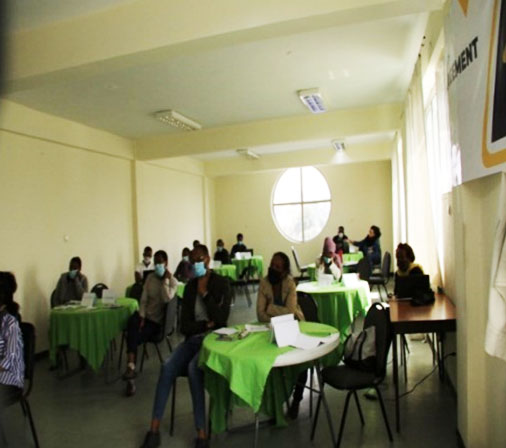
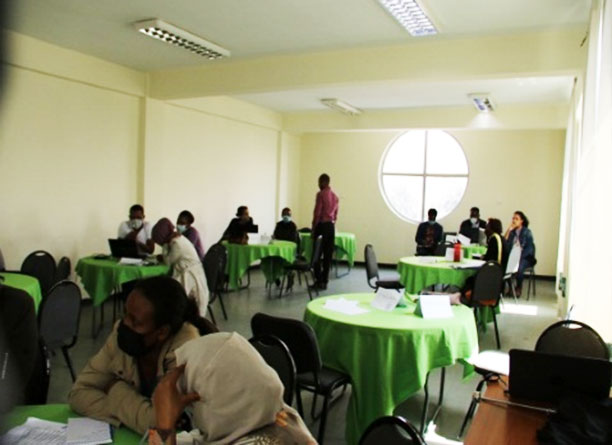
To facilitate and conduct the training women members of political parties have been identified and selected from eligible political parties which are expected to take part in the coming election. After receiving and update the current status of political parties women members, NEWA contacted and discussed with each political party and finally agreement reached to send the list of women members with confirmation letter. Then two days training was facilitated from 16-17/February/2021 at Intercontinental Hotel in Addis Ababa. The participants were 26 female members of national level political parties.
The main objective of the training was to expand participants’ understanding of basic concepts of gender and women’s participation in politics; and introduce participants to the theory, goals, and practice of political participation with a gender lens and in the Ethiopian context. The training was also aimed at introducing participants to the new electoral reform and the issues related to inclusion of women and their interests in the reform process.
Topics such as Gender and political participation, Factors impeding the participation of women in politics, factors that contribute to the advancement of women in politics, basic principles of electoral law, constitutional rights and international and regional human rights instruments, perspectives on women’s political participation, the roles of different stakeholders in enhancing the participation of women in politics, principles and rules in relation to the electoral systems, electoral management bodies, political parties, and election campaigns, and financing were discussed and addressed.
Question and answer, brainstorming, group discussions, presentation, and experience sharing were the main methodologies of the training.
capacity building training for NEWA member organizations provided from 02-Nov-2020 to 05-Nov-2020 at Kaleb Hotel. The objective of the training is to develop the skill and capacity of participants on proposal writing, and grasp adequate knowledge on the concept of community development, conceptual framework of program and project, logical framework analysis, monitoring and evaluation. There were 27 (M=14, F=13) participants represented from member women organizations.
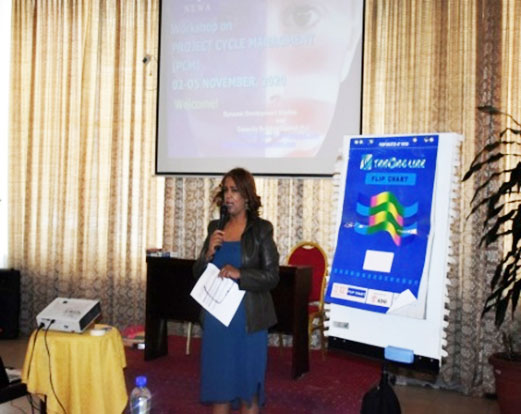
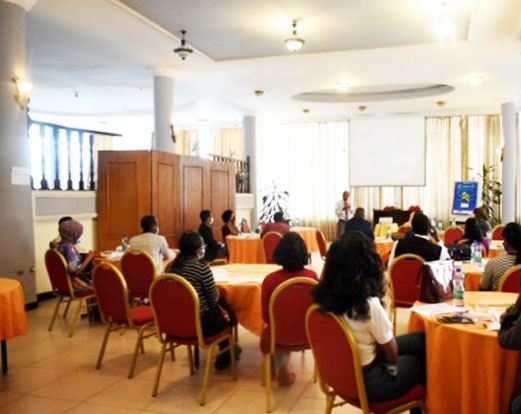
The objective of the training is to improve participants’ understanding of RM for organizational sustainability, develop strategies and plans for mobilizing resources to meet the resource demands of their organizations.
The training was held from 18 – 20 November, 2020 at Magnolia Hotel in Addis Ababa. A total of 27 participants (20 Female and 7 Male) drawn from member organizations including NEWA participated and successfully completed the training. The trainers facilitated the training using different participatory methodologies that take into account adult learning principles.
Topics such as What is Resource Mobilization and why we Need Resource, Conceptual Framework for RM and RM vs Fundraising, The Present Pattern of CSO Resources and The Influence of the Aid Trade, Foreign vs Local Resource Mobilization Endeavors, Approaches for Resource Mobilization, Principles of Resource Mobilization and Fund raising actors, Funding plan VS Volunteer giving in Resource Mobilizations, Resource Mobilization using internet and other online systems, Resource Mobilization Strategy and Developing RM Plan, Conducting SWOT Analysis for Resource Mobilization were covered and addressed. Presentation, Group Discussions, Discussion, Brainstorming were the main methodologies of the training.
As part of the activities of the 16 days of activism for 2020, NEWA conducted a one-day training for members of the Ethiopian Media on November 20, 2020 that was titled: Media Reporting of Gender Based Violence. GBV and media, ethical considerations of reporting GBV, and tools to use when interviewing GBV survivors were the key components of the training. The training was designed to serve as a preamble running up to the 16 days of Activism against GBV of 2020.
The overall purpose of the baseline assessment is to establish benchmark information on project indicators to set a basis for measuring project progress and success towards achieving set objective. The baseline assessment is framed to assess the existing situation of women political participation in selected political parties.
After the selection of consultant through bid process inception report was submitted by the consultant. To provide feedback and input for the consultant concerned NEWA staffs reviewed the report and provided their inputs for better improvement.
In the assessment, issues such as Affirmative Action and Quotas Capacity Building, for women political party members, Roles of key electoral players in ensure gender equality, women empowerment and women’s participation in matters that affect them, Institutional challenge and women political participation, Gender policy of inclusiveness in political parties, Perception to women political participation have been assessed and addressed.
To ensure meaningful participation of women in politics and governance NEWA is implementing a project ‘Supporting Women in political participation in Ethiopia’.
The training manual will serve as a resource document for NEWA for capacity building training on Women Political Leadership Training for female representatives from diverse political parties at National/Federal, Oromia and Benishnagul Gumuz regional states. Moreover, the manual can also be used as a reference source for partners undertaking similar interventions.
Female discussion group quarterly meeting was conducted on women land rights in five locations of Tulu Bolo, Awash Bune, Keta , Deka Guda and Soyema .
The female discussion group quarterly meeting has started with the first session of selected women from all five locations in collaboration with women and children affairs office. In these discussions, the participants are the ones who will lead the coming two quarter discussion groups in their respect project location in collaboration with the community facilitators.
Male discussion group who have taken the awareness program in two rounds selected from Woreda land administration and the five location land administration expert and farmers lead the discussion group in collaboration with the community facilitator that was assigned in their respective locations.
With the support of NEWA, 160 individuals (140 women and 20 men) with disability and living with HIV selected from members and beneficiaries for special support due to the severity of the problem they encounter as a result of their HIV status. These individuals encountered multifaceted problems due to the current global epidemic of Covid-19 in getting the necessary service in relation to HIV. Taking into account the current problem of the epidemic it has been difficult and forbidden by law to make a discussion , hence, these large number of 160 support group of individuals have been grouped in eight groups who have 20 members each. Two facilitators for each group have been assigned and these facilitators have been facilitating their respective groups four times within a month for sharing experiences on GBV, HIV, ART adherence education and other SRH issues. Two of the facilitators have independent duties in their respective groups in that while the one facilitating the discussion among the participants the other facilitator takes minutes of the discussion. The number of participants in each group is allowed only five individuals and facilitators have been meeting four times at least to reach total number of 20 individuals within their respective group within a month.
Telephone Communication has been another means of support mechanisms for those, one way or another, who had not been presented physically due to the distance of the meeting from their residents. Group facilitators have been responsible for leading the discussion, peer experience sharing, preparing monthly discussion plans, monthly reports, recording minutes of meetings and discussions as well as engaging health extension workers for extra counselling services for those who have behavioral problems in relation to either their spouse or family concerns and for any kind of issues beyond their (facilitators) knowledge. The duration of the support group is only six months, and another support group is formed for another six-month duration. However, those who couldn’t bring behavioral change would be transferred to the next term and selected group members.
Special support for 160 people with disability and living with HIV have been provided. Forming group members and strengthening the capacity of 16 facilitators had been a pivotal issue. Accordingly, different capacity building mechanisms have been rendered for the past three months during this reporting period. For mobile card and other related expenses Birr 150 has been paid monthly for the 16 facilitators.
In order to render disability and HIV related support for the above mentioned 160 support group members forming and strengthening the capacity of 16 facilitators has been a pivotal issue. Accordingly, different capacity building mechanisms have been rendered for the past three months of this project period. For mobile card and other related expenses Birr 150 has been paid monthly for the 16 facilitators.
Safe space approach has been adopted by YWCA to ensure the development and empowerment of young women and adolescent girls. With the aim of this, safe space has been established in Woreda 5 youth center. The proposed project established and created a secured and private virtual safe space which is relevant to provide SRHR information, counseling, and referral services. The virtual tool can be accessed from smartphone and computer and supported by free telephone call. The platform accommodates one to one sessions and forums. In line with this, safe space operational manual developed, and capacity building training has been given for concerned staffs. As a result of this platform, youth were able to get timely information on sexual reproductive health issues.
As part of supporting government policy and program initiatives, the sub-grantees have undertaken different activities. In this regard, the major activities include, provision of food items for those whose their livelihoods are negatively impacted by COVID-19, provision of start–up capital for income generating activities, provision and installation of water tankers for public use, provision of face masks, provision of sanitary materials like sanitizers and soaps, hair oils, cloths, shoes, supporting and rehabilitating of returnees, supporting and rehabilitation of GBV survivors.
Awareness raising program on the prevention of COVID-19 was conducted by sub grantees for target beneficiaries through different mechanisms. Significant number of community have been addressed and get aware of the pandemic. Volunteers actively participated in educating the community at public places like transport and market places. Brochures and leaflets were also prepared and disseminated to raise the level of awareness vulnerable people. The importance of using face masks, sanitizers and keeping social distancing were the main components of mass education and addressed issues.
After selecting children, women and girls from IDPs site to MLWDA safe house, all 45 children, women and girls have got comprehensive safe house services such as food and accommodation, health services, counseling service, legal aid service, and basic education. After receiving compressive safe house services, all survivors in the safe house are at good condition.
In connection with the COVID-19 outbreak and government restriction to people normal mobility and usual business; people particularly women that are engaged in various income generation activities, women with disabilities, women living with HIV virus are being seriously affected in their normal life and welfare/income worsening since disease reported and government emergency proclaimed. Therefore this activity was planned to assess and identify vulnerable people/households who economically affected as result of COVID-19 restriction to their normal business and income sources. And support direct cash transfer for total of 68 individuals/households and secure their basic needs such as food and medications and provide sanitary materials for selected poor women, persons with disability and HIV positive. To enable vulnerable women to cop up with the adverse situation 68 vulnerable people have registered; with twenty one male and forty seven female and direct cash transfer and COVID-19 prevention materials have distributed.
In connection with the COVID-19 outbreak and government restriction to people normal mobility and usual business; people particularly women that are engaged in various income generation activities, women with disabilities, women living with HIV virus are being seriously affected in their normal life and welfare/income worsening since disease reported and government emergency proclaimed. Therefore this activity was planned to assess and identify vulnerable people/households whose means of livelihood greatly affected by the negative impact of COVID-19 like restriction to their normal business and income sources. And support provided through direct cash transfer for total of 68 individuals/households and secure their basic needs such as food and medications and provide sanitary materials for selected poor women, persons with disability and HIV positive.
To build the capacity and strengthen the internal control system of member organizations, NEWA has taken the initiation and the lead to provide technical support for the development of operational manuals and policies like HR and financial manuals, safeguarding policy manual. NEWA has also provided up to date operational manuals for targeted women organizations and they were able to customize and utilize. As a result, currently targeted members organizations have their own operational manuals and installed strong internal control system.
Website is one means of selling products of the organization. It is a tool for advocacy and lobbing on a given issues which is enabler to reach millions through and it is also a means of resource mobilization. It helps to promote the organization on thematic of working and changes brought as a result in a given community. Therefore, this activity was planned so as to make members to establish website and improve their organization networking, advocacy, promotion and communications and accordingly all targeted member women organizations have their own website with the support of NEWA.
Mapping of CSOs was conducted and two new women organization identified and became member of NEWA. Currently there are twenty seven member women organizations under the umbrella of NEWA and being supported technically and financially. To achieve common objectives they have been sub granted with significant lamb sum of budget and implementing different projects. During their partnership agreement period their capacity assessed and helped to develop capacity building action plan. During the assessment major findings like external relation and media engagement, resource mobilization, inadequate number human resource and less capacity of staffs have been identified.
Additional two women organization have been identified and recruited as NEWA member. Good Samaritan is one of the newly recruited women organization and currently has got grant budget and working on rehabilitation of returnees by providing them business skill training and psychosocial support. Beza women organization the other one working on urban agriculture i.e. vegetable production and IGA from school feeding program. Technical support being provided by NEWA through recurrent supportive supervision and monitoring program.
Women and girls who are residing in the shelter house have received a dignity kit (sanitary pad, hair oil, Vaseline, soap, tooth brush and comb) and this has enabled them to keep their personal hygiene and health condition.
MLWDA has purchased and distributed cloth and shoes for 45 IDP survivors. Displaced children, women and girls did not have extra cloth and shoe. Due to the support, most of the survivors have improved their personal hygiene, and thereby their health condition has been improved.
Since Benshangul gumze was located in the hard to reach area, it was difficult to get access for electric power from the main electric grid. As a result, the safe house was using solar energy and this has limited the energy source and work efficiency as the required energy level could not be obtained timely. However, with the financial support of NEWA, we have been able to install electric infrastructure and got electric power from the main electric grid and are getting reliable energy to facilitate safe house activities. In addition, we have bought washing machines particularly for fistula survivors’ sanitation, and water containers to ensure reliable water supply. As a result of the implementation of this project activity, MLWDA has improved its capability in facilitating safe house services and enhancing the quality of its services and thereby meet the needs of survivors and improve their satisfaction level. Before this project intervention, water shortage was one of the challenges of MLWDA safe house. However, after the project intervention, our problem has been solved in sufficient manners. Moreover, MLWDA did not have a laundry machine before the implementation of this project. The purchase of a laundry machine with the support of NEWA has greatly contributed to keeping the hygiene and health of survivors.
With the aim to enhance the income generating capacity of selected internally displaced women and girls, MLWDA has provided skill based training to them. Accordingly, MLWDA provided sewing machine training to ten (10) inside the safe house and gave them seed money to start their own business. Currently, they started their own life.
The design of Strategic Planning (SP) helps organization to have clear short and long term millstones and targets to reach. It shows where the organizations want to attain in short and medium project implementation periods. Family Service Association (FSA) has selected a consultant through expression of interest to develop SP document. Accordingly, organizational SWOT analysis was made which engaged staff and stakeholders to identify organization’s strong and weak sides similarly what are opportunities and threats for the organization were identified the result are used as input for strategic planning purpose. Besides, the consultant used FSA’s various documents and reviewed to use as input for strategic planning purpose. Now, FSA received the first draft of strategic plan document.
With the facilitation of Beza Women Training on nutrition and personal hygiene provided for 122 mothers of under-five aged children. For the next round 78 trainees are expected to attend the training. The target groups are female headed households and unemployed women. After the training completed participants are expected to form 20 groups and in one group there will be ten members. In line with this, pass book will be opened for each participant with startup capital 500.00 ETB. After the provision of working materials target beneficiaries are expected to facilitate school feeding program and generate income consistently. It is expected that the group members will earn nearly 40,000.00 ETB each month from the revenue of school feeding. The group members will be trained on business management skill.
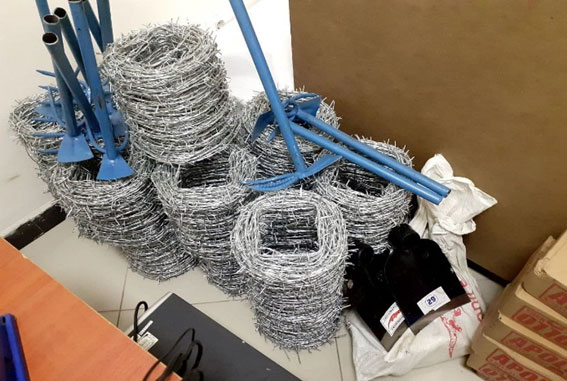
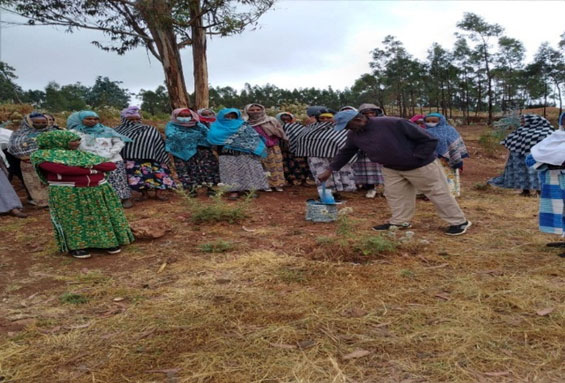
Conducting rapid capacity assessment is essential to provide baseline data for the project, to assess the level of knowledge, skill of women members of political parties and prospective candidates on electoral process, electoral legal framework, and political leadership
TOR was developed to invite interested consultants to conduct the rapid capacity assessment. The winner consultant conducted the assessment and produced inception report and presented for NEWA team. The team has given varies inputs and comments on the proposed methodologies and tools and the final report is expected to be finalized soon.
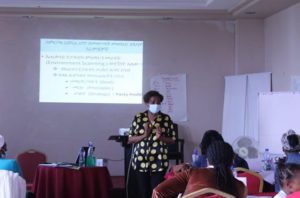 Capacity development trainings for women politicians and aspirants on Political Leadership conducted to increase the awareness of women political candidates and aspirants on gender, political leadership and decision-making, democracy, human rights.
Capacity development trainings for women politicians and aspirants on Political Leadership conducted to increase the awareness of women political candidates and aspirants on gender, political leadership and decision-making, democracy, human rights.
With the aim of discussing the negative impact of COVID-19 on women’s participation in public and political life a webinar conducted on the 12th of October 2020 on a topic of ‘women’s leadership and political participation during COVID-19 in Ethiopia’ .
Representatives from political parties, civil society, Human rights commission, NEBE were the main participants of the webinar session. A total of 92 participants attended the meeting. In the meeting presentation was made on policy brief and participants reflected and recommended possible solutions to mitigate the existing problems.
Additional two women organization have been identified and recruited as NEWA member. Good Samaritan is one of the newly recruited women organization and currently has got grant budget and working on rehabilitation of returnees by providing them business skill training and psychosocial support. Beza women organization the other one working on urban agriculture i.e. vegetable production and IGA from school feeding program. Technical support being provided by NEWA through recurrent supportive supervision and monitoring program.
With the aim of establishing and strengthen coordination among the CSOs and conduct an awareness workshop for CSO’s on Operational Planning, advocacy on women political Empowerment rapid mapping of CSO’s Conducted which focused on women political participation
Mapping of CSOs was conducted and two new women organization identified and became member of NEWA. Currently there are twenty seven member women organizations under the umbrella of NEWA and being supported technically and financially. To achieve common objectives they have been sub granted with significant lamb sum of budget and implementing different projects. During their partnership agreement period their capacity assessed and helped to develop capacity building action plan. During the assessment major findings like external relation and media engagement, resource mobilization, inadequate number human resource and less capacity of staffs have been identified.
Monitoring of projects is a key issue for the successful accomplishment of the program and achievement of desired objectives. To measure the efficiency and effectiveness of our projects; result/impact oriented M&E system has paramount importance. Based on this, strong M&E system has been installed by preparing manual that comprise M&E tools, log frames, M&E plan and others and with the help of this continuous monitoring visit has been conducted and able to provide technical support for members organizations. As a result of monitoring visit program performance improved and quality service being provided for target beneficiaries.
Continuous following up was made to track the progress of planned activities through supportive supervision and monitoring program. During monitoring visit technical support provided, gaps identified and communicated for concerned staffs for better improvements and learning also explored and shared to help for future programming
Sign-up for up to date info
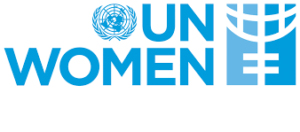
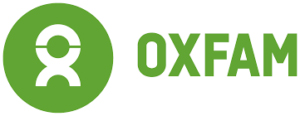
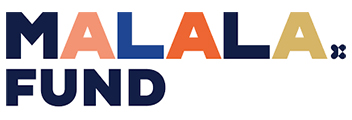
Season Sale
Lorem ipsum dolor sit amet, consectetur adipiscing elit. Ut elit tellus, luctus nec ullamcorper mattis.
Free Shipping
Lorem ipsum dolor sit amet, consectetur adipiscing elit. Ut elit tellus, luctus nec ullamcorper mattis.
Money Back Guarantee
Lorem ipsum dolor sit amet, consectetur adipiscing elit. Ut elit tellus, luctus nec ullamcorper mattis.
